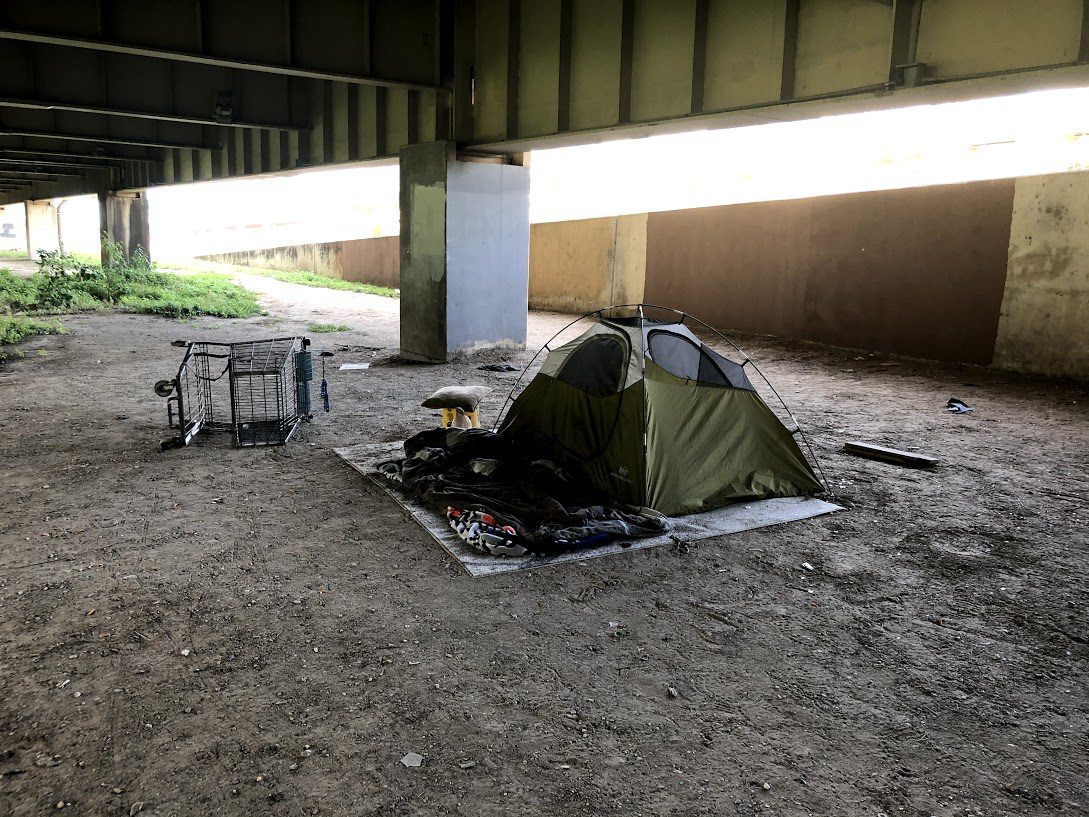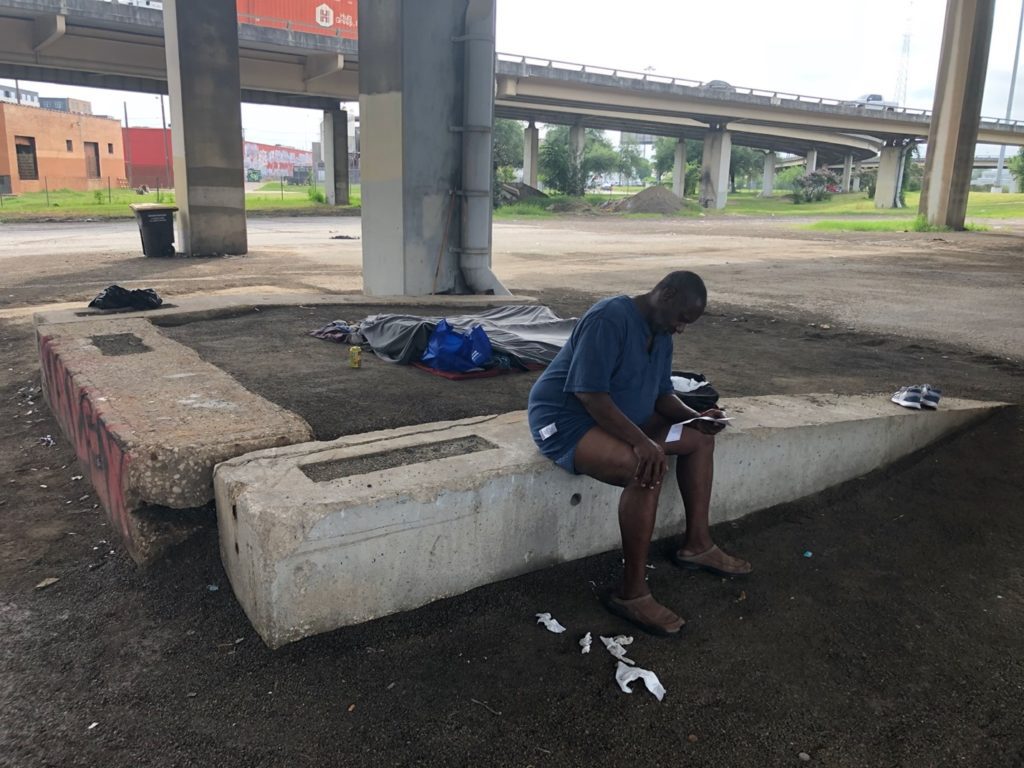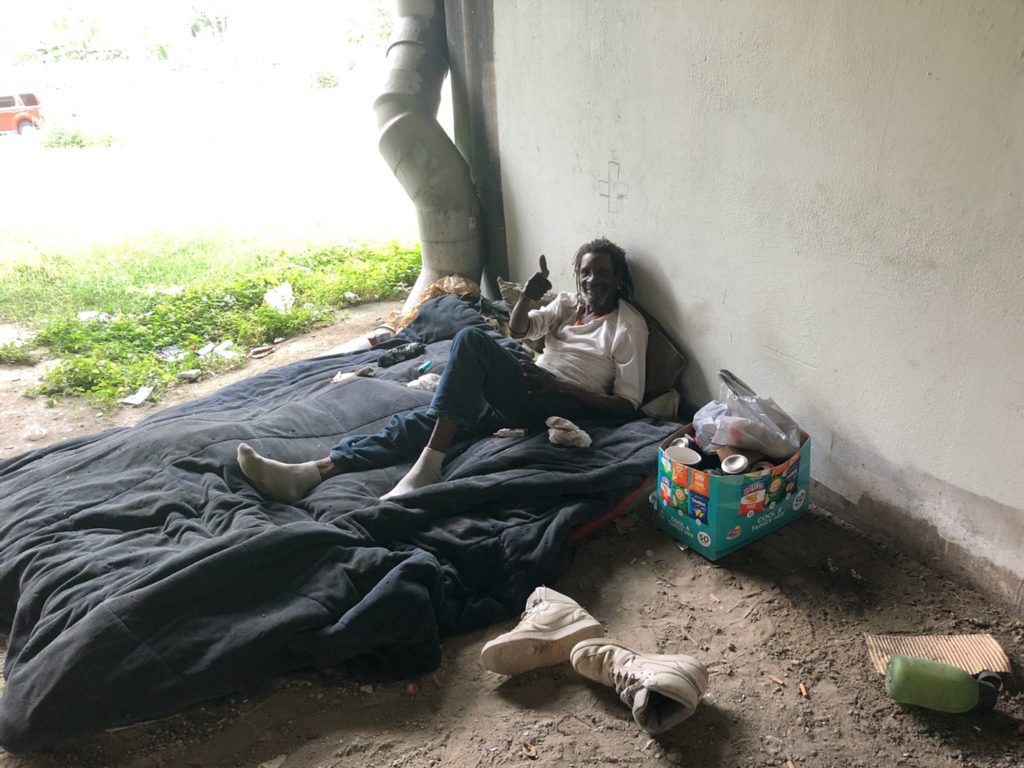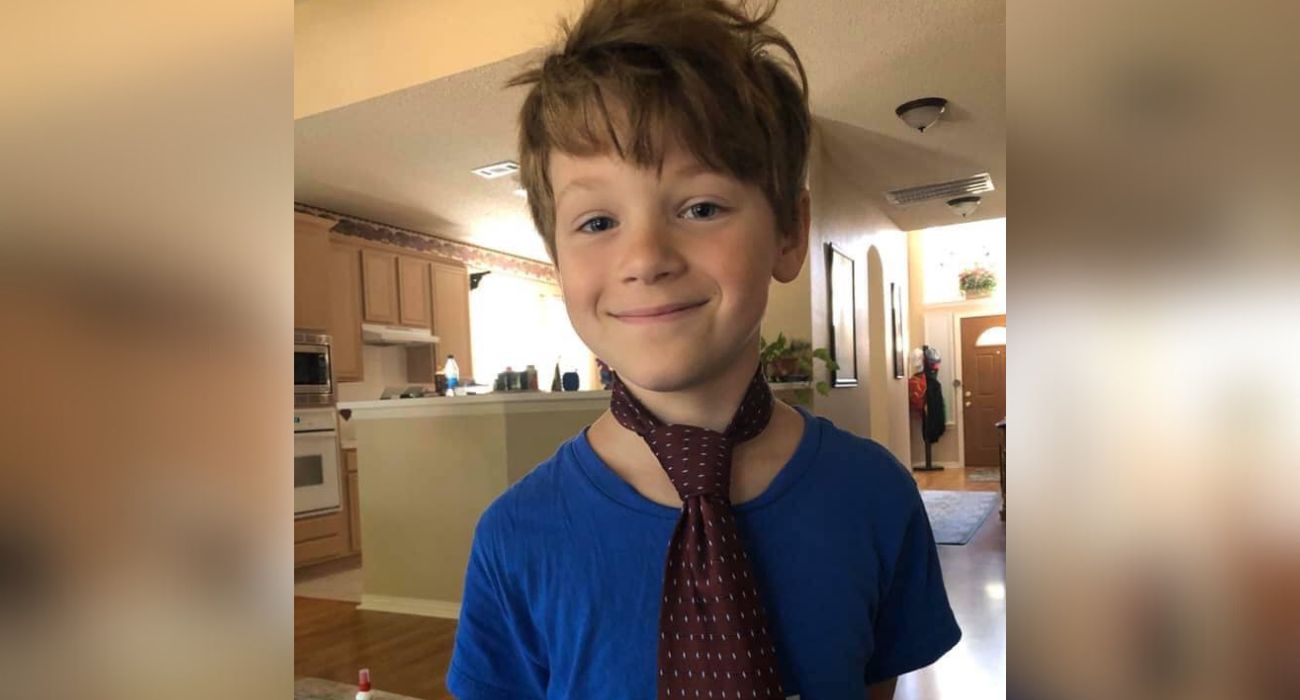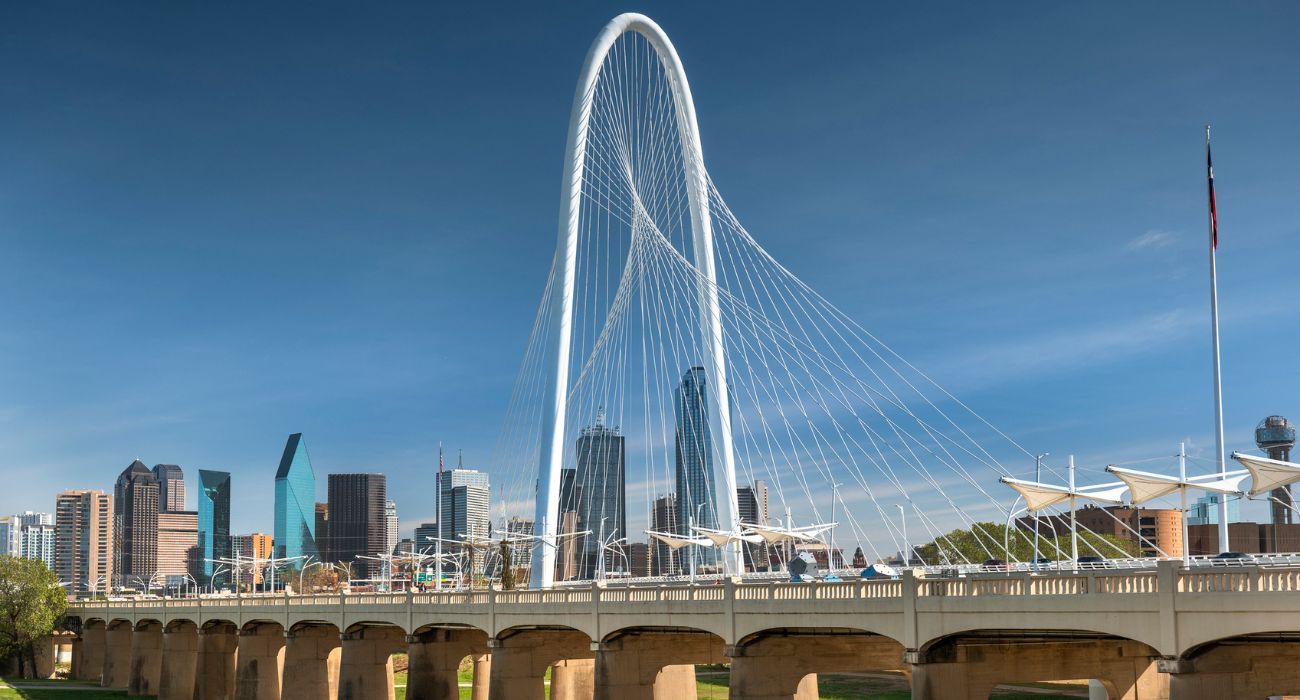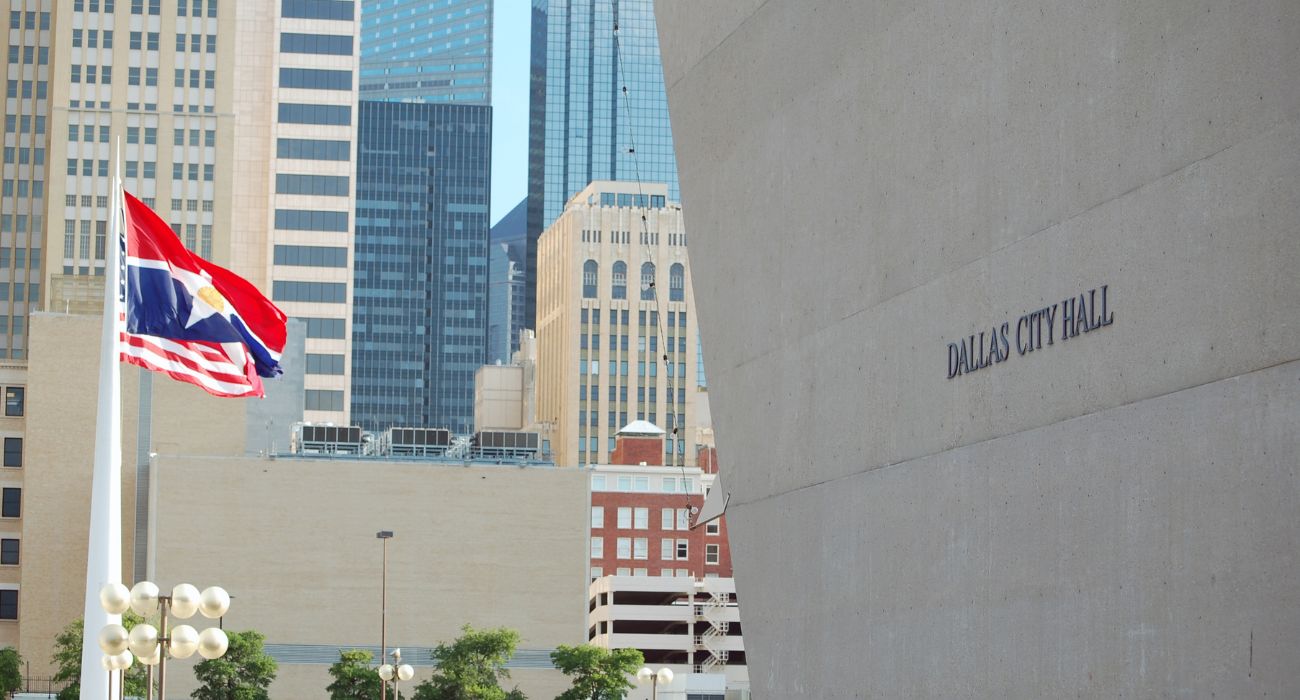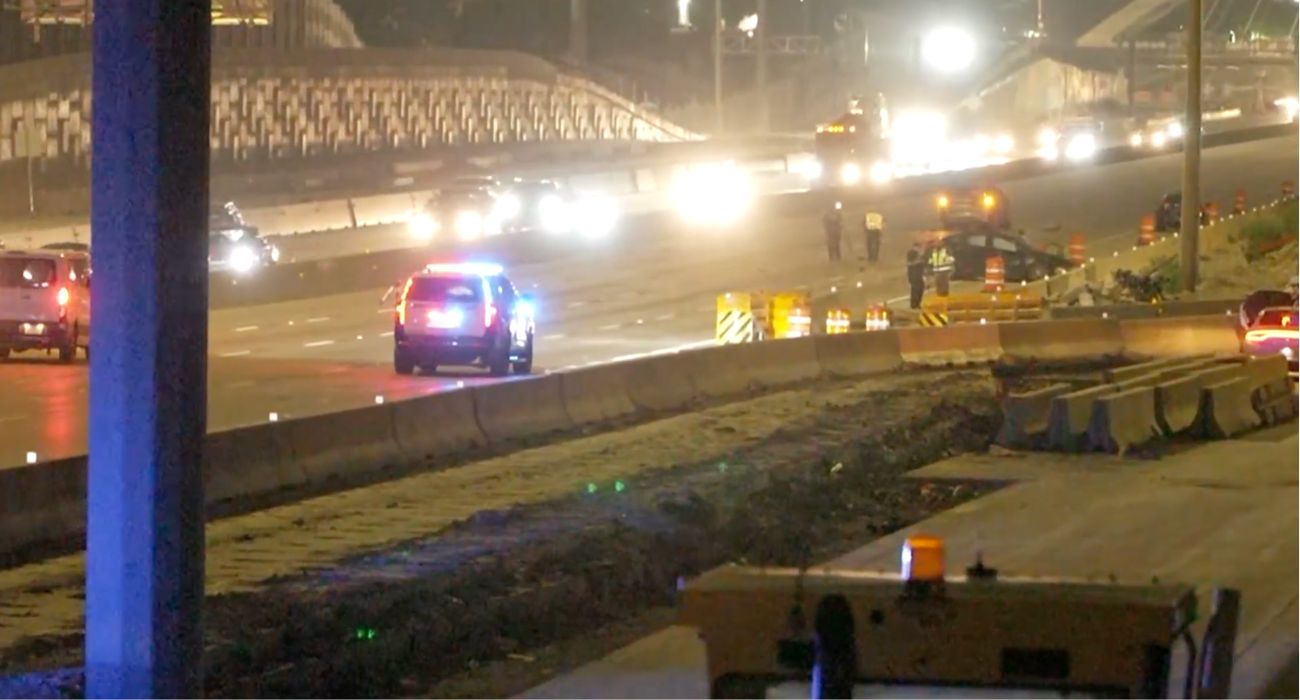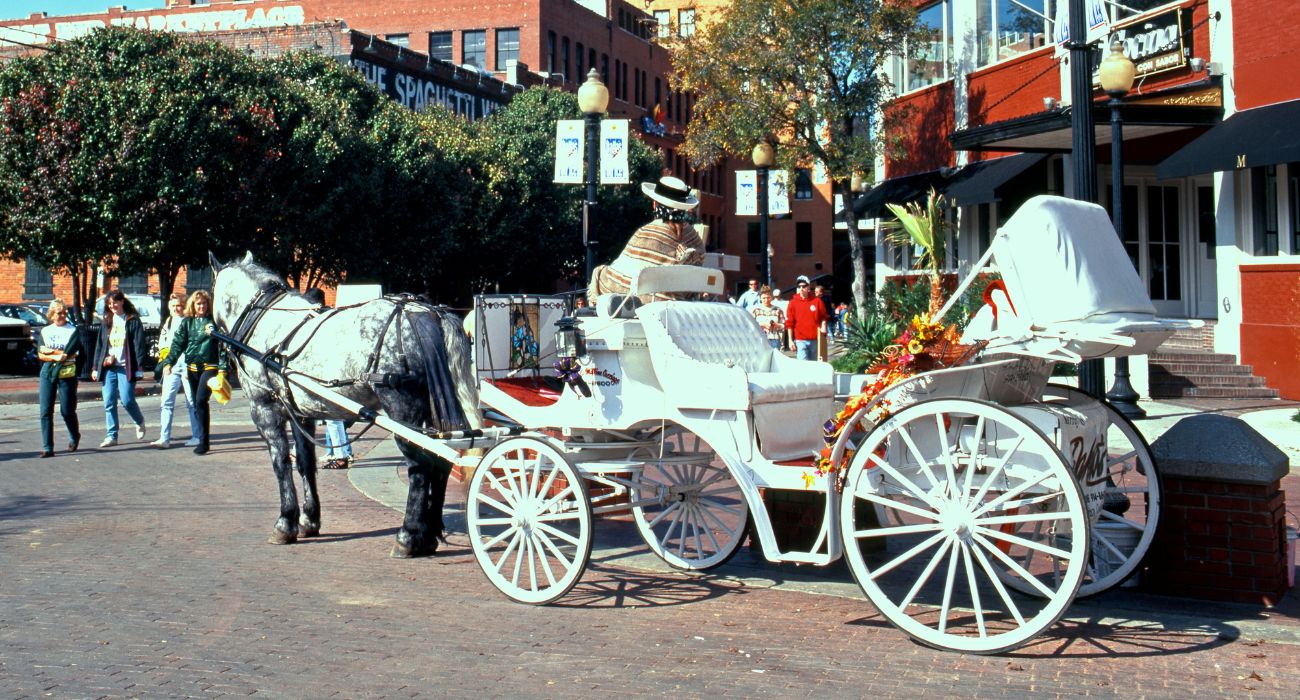Homelessness in Dallas doesn’t exist solely in empty neighborhood lots like Camp Rhonda, or in city parks. It’s also found beneath the underpasses of Interstate 345.
Last month, under I-345 and Henry Street, we found Lee, an older middle-aged man with graying hair and beard. A blanket lies where he sleeps and covers his few belongings. He’s lived here 5 years after losing his job and going through a divorce.
There’s also Don, a homeless senior citizen found lying on his mattress under the intersection of Ross Ave and I-345.
Don said he retired from Dallas Independent School district, and is waiting for his retirement and Social Security to come when he turns 65 this September. As for now, “I’m on vacation!”
At night, he goes to the shelter.
There’s also Robert, appearing to be in his 30s to 40s, who used to work on gun safes in Denton, and Nekwuojo Maha, who had been a Fire Safety Director in New York.
Shelters
Maha said he’s been stranded in Dallas since 2013 because all of his belongings, including his ID, were taken from him. He claimed The Bridge Shelter took his bags, which had his ID. “That’s how I end up on the street.”
According to Maha, they claimed not to find the bags he left with them; then, after some time passed, asked what items within them he wanted.
“I said I want the whole thing, and they never gave it back to me again,” he recalled.
He claimed they kicked him out because he kept asking about it.
Maha also said The Bridge had originally sent him to The Stewpot, which helped him get his Texas Driver’s License.
The Bridge Homeless Recovery Center did not respond to a media inquiry before publication.
With his ID gone, Maha can’t work, or get a visa to visit his family in Nigeria.
As for life in the shelters, Lee had little good to say.
“You got 300 other folks that’s not cordial half the time,” he said. “Get upset over the shower. Get upset over what they eat. Get upset over what time they got to be back in. And the conflicts? Can’t deal with them. I need some peace.”
He mentioned another issue. “See how many ambulance and police come to Austin Street Shelter because sick folks is in there. They’re not taking their medication,” he said.
The Dallas Express asked Austin Street Center for comment.
“We offer mental health services, through IPS (Integrated Psychotherapeutic Services) and Metro Care for clients who choose to take advantage of them. Medication is offered after an evaluation by the doctor,” Teresa Thomas, Director of Advancement Communications, said. “We do not and would not want to have the right to force medicate anyone. Nor do the mental health organizations who provide our services. When clients decide not to seek help or take their medication as prescribed, intervention is sometimes required.”
“In instances of threat of harm/safety to themselves or others, or at the request of the client, an ambulance or police may be called for intervention to the nearest Mental Health/behavioral hospital, or facility,” Thomas said. “I cannot comment on the frequency of these calls.”
Maha said the best help he’s received was from Don Nedler, owner of the now closed Lizard Lounge.
“He was a great, still a great help to me,” he said. “That’s why I didn’t even feel like I was on the street, because I used to take my bags, do whatever I want to do over there [at the Lizard Lounge], even cook.”
“I was there with him more than five years…he give me money too,” Maha said. “Not only drinks, [but] clothes that I was wearing.”
“The government needs to work in helping these facilities to better house everybody, and to get their paperwork so that they can go get jobs,” Robert said. “Not take six months to get your ID. Housing shouldn’t take seven, eight, nine, 10 months, 12 months.”
Robert said the way the current system is set up, it’s in the shelters’ best interest to take time.
“If they just go and give somebody their stuff, guess what? The government pretty much doesn’t pay them.”
Identification
Other homeless have echoed the need for ID. Robert said ID theft skyrocketed during COVID—19.
“A lot of people’s IDs and stuff got stolen. I mean, it got bad out here,” he said, adding that “the homeless community” itself was responsible. “It got so bad out here that the homeless was trying to take care of each other, but then you’d find some homeless that would grab up stuff … They come from out of state.”
Those getting replacement IDs are having to wait.
“The Department of Motor Vehicles, there’s a waiting list right now because they’re so backlogged,” Robert said. “I used to get my Social Security card in seven days. Now it takes like almost a month.”
Lee credits The Stewpot, an organization aiding the homeless, for helping him get his ID. “As soon as I get my Social Security card, I’m going back to work and live like a human being.”
Solutions
Regarding helping the homeless, Lee advises learning what happens at the shelters first.
“Then make your own decision about how you can really help,” Lee said. “The problem is, I believe is, the mental illness part of it that nobody knows how to figure out … You get depressed…and you act out. When [you’re] acting out, you really want some help but you don’t know how to get it.”
Robert emphasizes the need for ID.
“There’s a lot of people out here who will work,” he said. “There’s a lot of homeless people that just want to work and still be homeless.”
Robert also wants to work, but he doesn’t want to be homeless. “I don’t want to be out here … but I can’t get that without an ID.”

